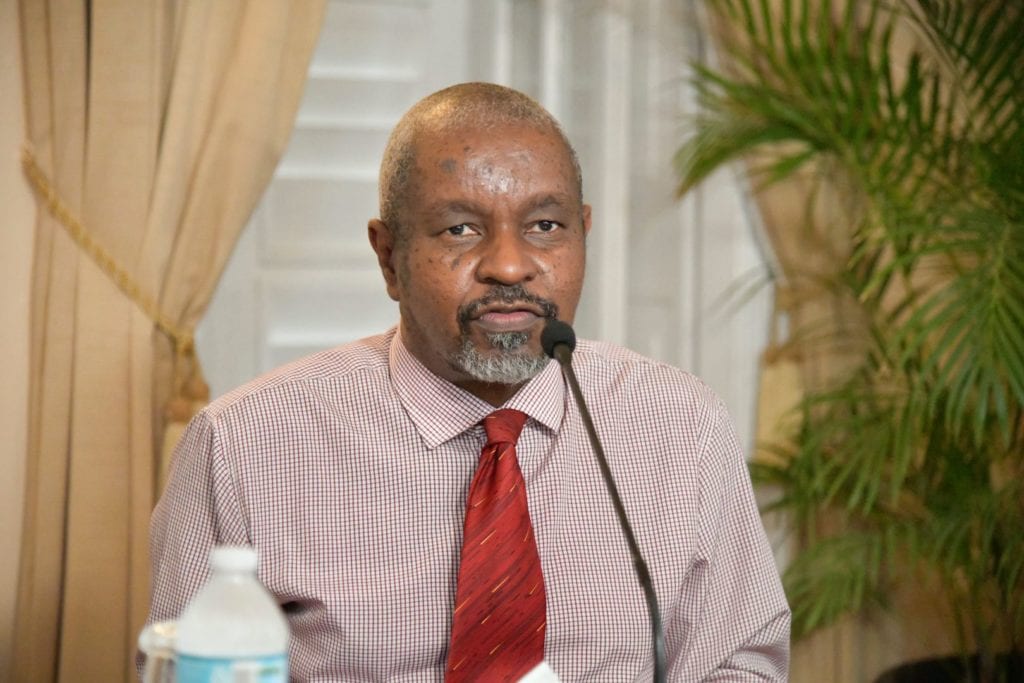Barbados is not planning to impose new taxes or additional compliance burdens on businesses following the repeal of a key company law, the minister for business has told the business community, seeking to allay confusion over the impact of global tax reforms.
Minister of Energy and Business Development, Senator Lisa Cummins, on Wednesday moved to reassure businesses that the repeal of the Companies (Economic Substance) Act does not introduce any new taxes or additional compliance obligations for ordinary domestic firms.
As Senate lawmakers moved to final passage of the repeal, Senator Cummins stressed that the global minimum tax regime and economic substance rules apply only to large multinational groups earning about €750m ($1.75bn) a year. As the vast majority of Barbadian companies do not meet that threshold, they therefore have no filing requirements under the economic substance framework, she said.
“Most companies in this country will not be affected by economic substance rules,” she told senators. “It does not apply. This has nothing to do with taxes for regular businesses.”
She reaffirmed that companies will continue paying the existing 9 to 9.5 per cent corporate tax rate. “This is not the introduction of a new tax for any companies,” she said, adding that the reform is intended to make it simpler for the government to administer, by moving away from split reporting to two separate agencies.
Under the consolidated regime, which has been in place since January 1, the economic substance provisions previously set out in the 2019 act were transferred to sections 62A to 62F of the Income Tax Act. Senator Cummins said this creates “a level of synergy whereby a single regime is being managed by a single agency,” noting that companies had long complained about duplicated reporting to both the International Business Unit and the Barbados Revenue Authority.
Transitional rules still apply for companies completing assessments for the 2024 fiscal period. Senator Cummins explained that all rights, obligations and enforcement powers under the former Act remain valid for those filings. “For the period up to December 2024, the Director of International Business will retain the powers for audit and enforce compliance,” she said. “But for fiscal periods going forward from 2025 onward, substance declarations will be filed along with the corporation tax return to the BRA.”
Only three types of business – shipping, insurance and intellectual property activities under the patent box – continue to face heightened economic substance requirements.
“It is not that they have lower compliance requirements,” Senator Cummins said. “They actually have higher compliance requirements.” She said companies in these sectors must continue submitting supporting documentation demonstrating real activity, which the IBU will review and share with the BRA.
She placed the reform in the context of the government’s broader effort to strengthen Barbados’ standing in the global tax environment. Barbados adopted the global minimum tax on January 1, 2024 and signed a multilateral agreement with the Organisation for Economic Co-operation and Development (OECD), under which the BRA must submit annual international reports.
Senator Cummins reminded senators that the OECD does not blacklist jurisdictions, but some European Union member states have previously designated Barbados as non-cooperative solely because of the island’s former low corporate tax rates. “There are some companies that would have to move domiciles from the country if Barbados was to go from a grey list to a blacklist,” she said. “We have taken every possible action to ensure that Barbados does not find itself in that space.”
She outlined a three-track roadmap that the government is following to reach full OECD compliance: legislative amendments, technology upgrades and specialised human resource development. “Our ambition is to ensure that Barbados is compliant,” she said. “And where reforms are necessary, that we pivot and make those reforms in a timely manner.”
While Wednesday’s debate focused on the workings of the new regime, Senator Cummins also highlighted forthcoming transparency reforms. Barbados is preparing to introduce a Beneficial Ownership Register to identify individuals who ultimately control companies, she said. A team from the IBU and the new business facilitation agency, Business Barbados, recently visited the Cayman Islands to examine its well-regarded model.
“We are engaging in an exercise to ensure that Barbados can introduce a Beneficial Ownership Register,” she said.
Barbados is also negotiating several new or updated double taxation agreements, including recent rounds with Hong Kong and Curaçao. Senator Cummins said these developments, together with the consolidated filing system, will help ensure Barbados remains credible and open for global business as companies prepare their 2025 and 2026 returns. (SM)
The post Biz shielded from new tax, compliance burden as law repealed — minister appeared first on Barbados Today.


